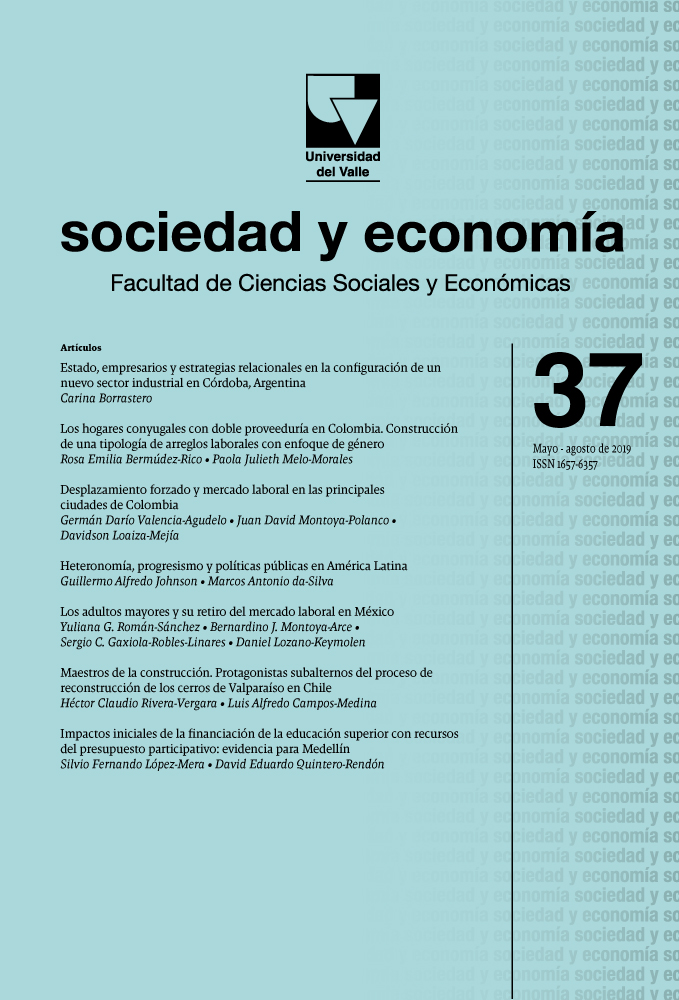Initial Impacts of Higher Education Financing with Participatory Budget Resources: Evidence for Medellín
Published:
2019-05-15
Keywords:
Education, Financing, Participatory Budget, RDD, ImpactMain Article Content
This paper assesses the impact that higher education funding has had in Medellin with resources from the
Municipal Administration’s participatory budget program during the 2007-2015 period. The impact on employment, income, early children, civil status and improvement of the economic situation in subsequent years to the financing of the program is studied employing the certified database of the Sisben 2015 and the database of people enrolled in the program. The treatment eligibility rule is used, so a sharp discontinuous regression design is estimated; the results indicate that the non-eligible population in the margin show similiar features to those eligible. The program reduces the probability of being employed and receiving an income as well as having children. However, it increases the chances for low-income people to access higher education and achieve a higher socio-economic level. There is no evidence of any effect on marital status.
Municipal Administration’s participatory budget program during the 2007-2015 period. The impact on employment, income, early children, civil status and improvement of the economic situation in subsequent years to the financing of the program is studied employing the certified database of the Sisben 2015 and the database of people enrolled in the program. The treatment eligibility rule is used, so a sharp discontinuous regression design is estimated; the results indicate that the non-eligible population in the margin show similiar features to those eligible. The program reduces the probability of being employed and receiving an income as well as having children. However, it increases the chances for low-income people to access higher education and achieve a higher socio-economic level. There is no evidence of any effect on marital status.
1.
López-Mera SF, Quintero-Rendón DE. Initial Impacts of Higher Education Financing with Participatory Budget Resources: Evidence for Medellín. soc.eco [Internet]. 2019 May 15 [cited 2026 Mar. 5];(37). Available from: https://sociedadyeconomia.univalle.edu.co/index.php/sociedad_y_economia/article/view/7826
Downloads
Download data is not yet available.

This work is licensed under a Creative Commons Attribution-NonCommercial 4.0 International License.
Revista sociedad y economía editada por la Facultad de Ciencias Sociales y Económicas de la Universidad del Valle se encuentra bajo una Licencia Internacional Creative Commons Atribución - No comercial 4.0
Basada en una obra en http://sociedadyeconomia.univalle.edu.co

